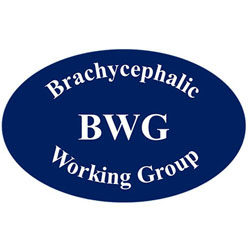The UK Brachycephalic Working Group (BWG), a group of the UK’s leading dog health and welfare organisations, has welcomed The Kennel Club’s announcement introducing mandatory health-related entry requirements for Pugs, English Bulldogs and French Bulldogs at Crufts. The measures, which will be introduced from 2025, are a step in the right direction to protect the health of these brachycephalic dogs.
Next year, all dogs from these three flat-faced breeds entered at Crufts will be required to have undergone a valid breathing function test. This is known as a Respiratory Function Grading (RFG) scheme assessment. Dogs with the most serious form of breathing problems assessed as Grade 3 will not be allowed entry into the competition.
This move will support the vet checks already in place at Crufts for all Group winners and Breed Watch Category Three Best of Breed winners, to help to ensure that winning dogs are visibly healthy on the day of judging.
Responding to the announcement, Dr Dan O’Neill, chair of the BWG, said: “Not allowing Pugs, English Bulldogs and French bulldogs with the most severe respiratory issues to participate at Crufts from next year is a step in the right direction. The dog show community has a role to play in promoting healthy dogs to the wider public and breeders. This new entry requirement sends a strong message to puppy buyers about the value of the Respiratory Function Grading scheme when acquiring a new dog.
“The Kennel Club is to be commended for this move that also supports the BWG strategic aim of ensuring the hobby of dog showing promotes and rewards healthy dogs.”
The RFG scheme has been developed by the University of Cambridge and The Kennel Club to assess English Bulldogs, French Bulldogs and Pugs for brachycephalic obstructive airway syndrome (BOAS). Dogs are graded from zero to three on the severity of their clinical signs. Dogs graded as three are severely affected and show severe respiratory signs of BOAS where veterinary examination and possibly surgery is advised.
